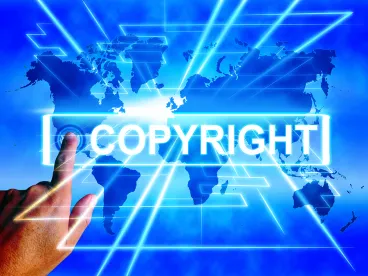Opening another front in the data wars, the Members of the European Parliament, on March 26, 2019, adopted the text of a new Copyright Directive. According to the European Parliament, the Directive “aims to ensure that the longstanding rights and obligations of copyright law also apply to the internet” and that “YouTube, Facebook and Google News are some of the internet household names that will be most directly affected by this legislation.”
Well, yes. The Directive very clearly takes aim at “internet giants”, seeking to level the playing field for “creatives” and news publishers. Outlining how it anticipates the Directive achieving that goal, the European Parliament said:
Currently, internet companies have little incentive to sign fair licensing agreements with rights holders, because they are not considered liable for the content that their users upload. They are only obliged to remove infringing content when a rights holder asks them to do so. However, this is cumbersome for rights holders and does not guarantee them a fair revenue. Making internet companies liable will enhance rights holders’ chances (notably musicians, performers and script authors, as well as news publishers and journalists) to secure fair licensing agreements, thereby obtaining fairer remuneration for the use of their works exploited digitally.
The proposed “stick” to put teeth into this new structure is, unsurprisingly, the risk of liability. Under Article 17 of the Directive [Certain uses of protected content by online services], the Directive will impose an affirmative obligation on online content sharing services to use “best efforts” to ensure that all content is either properly licensed or exempted. As a result, internet companies may be held liable for content on their services irrespective of whether anyone has cried “foul”:
If no authorisation is granted, online content-sharing service providers shall be liable for unauthorised acts of communication to the public, including making available to the public, of copyright-protected works and other subject matter, unless the service providers demonstrate that they have:
(a) made best efforts to obtain an authorisation, and
(b) made, in accordance with high industry standards of professional diligence, best efforts to ensure the unavailability of specific works and other subject matter for which the rightholders have provided the service providers with the relevant and necessary information; and in any event
(c) acted expeditiously, upon receiving a sufficiently substantiated notice from the rightholders, to disable access to, or to remove from, their websites the notified works or other subject matter, and made best efforts to prevent their future uploads . ...
Other eye-opening provisions of the Directive include Article 19 [Transparency], which compels licensees to report to licensors, at least annually, all revenues and remuneration due from the exploitation of licensed works, and Article 20 [Contract Adjustment Mechanism], which allows a licensees a claim against licensors when (in the absence of an existing collective bargaining agreement), “the remuneration originally agreed turns out to be disproportionately low compared to all the subsequent relevant revenues derived from the exploitation of the works or performances.”
Much of the reporting on the Directive has focused on the vagueness of some of the standards set therein, particularly the “carve out” for the use by “online content-sharing service provider” (like Yahoo or Baidu) of “very short” snippets of copyrighted content. The Members explained:
. . . it is appropriate to provide that the use of individual words or very short extracts of press publications should not fall within the scope of the rights provided for in this Directive. Taking into account the massive aggregation and use of press publications by information society service providers, it is important that the exclusion of very short extracts be interpreted in such a way as not to affect the effectiveness of the rights provided for in this Directive.
Given the past opposition to the Directive by the big online platforms, there is now much speculation whether these “internet giants” will eventually have to comply or else leave the EU to avoid being fined. But, despite a safe harbor in the Directive for start-ups, some think that implementation costs of the Directive could be enough to drive even internet small fry out of business. (Start-up platforms, in business fewer than three years, with turnover of less than 10 million euros and fewer than 5 million unique viewers per month, are “only” required remove the unauthorized works from their websites.)
If the EU member states accept the text adopted by the European Parliament, the Directive will take effect after publication in the official journal and then member states will have 2 years to implement it.
The Directive raises another potential headache for internet companies: piecemeal and inconsistent regulation. While EU regulations have binding legal force throughout every Member State and enter into force on a set date in all the Member States, directives lay down certain results that must be achieved but each Member State is free to decide how to transpose directives into national laws.




 />i
/>i
